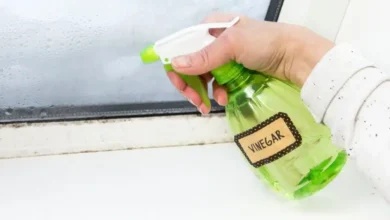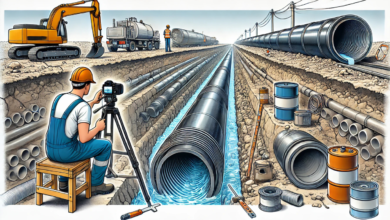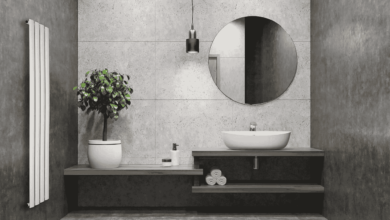The Ultimate Guide to Choosing the Perfect Security Door for Your Home

What Are Security Doors?
Security doors are specially designed entrances that offer enhanced protection against unauthorized access, burglary, weather elements, and even fire. Built from reinforced steel, aluminum, or solid-core wood, these doors are integrated with heavy-duty locking systems, impact-resistant materials, and tamper-proof hardware. Whether for residential or commercial use, they serve as a critical first line of defense.
Types of Security Doors
Steel Security Doors
Steel doors are one of the most popular options due to their strength and durability. Often powder-coated to resist rust, they provide maximum resistance to force entry and are suitable for both interior and exterior installations.
Aluminum Security Doors
These doors are lightweight but still provide excellent resistance to corrosion. Commonly used in coastal areas, aluminum doors are ideal where both security and weather protection are required.
Mesh Security Doors
Also known as security screen doors, these feature stainless steel mesh that allows airflow and visibility while protecting against intruders and insects. They are common in homes that value ventilation and safety.
Fire-Rated Security Doors
Fire-rated doors are designed not just to keep intruders out but to also withstand fire for extended periods. Typically installed in commercial spaces, they comply with strict building and fire safety codes.
Key Features of High-Quality Security Doors
Multi-Point Locking Systems
Top-tier security doors come equipped with multi-point locks, securing the door at multiple points along the frame. This makes it significantly harder to pry or force the door open.
Heavy-Duty Hinges and Frames
Reinforced hinges and frames prevent door sagging and add structural support. In most cases, the frames are bolted into the wall with expansion bolts to prevent kicking or ramming.
Impact-Resistant Materials
Whether it’s bullet-resistant glass inserts or solid metal cores, these materials are crafted to absorb and deflect impact, resisting break-ins, blunt force, and even small arms fire in advanced models.
Weather and Corrosion Resistance
Galvanized finishes, weather stripping, and UV-protected coatings make these doors ideal for any climate, resisting moisture, rot, rust, and sun damage.
Benefits of Installing Security Doors
Enhanced Home Security
The most obvious advantage is increased protection from burglars and unauthorized entry. These doors deter intruders through both physical resistance and visual intimidation.
Increased Property Value
Homebuyers and property investors appreciate added security features. A solid security door can boost your home’s market appeal and perceived value.
Energy Efficiency
Many security doors are insulated, helping reduce heat loss and maintaining indoor temperatures. This leads to lower energy bills over time.
Noise Reduction
The dense core materials used in security doors also act as a sound barrier, reducing external noise pollution — ideal for urban homes and apartments.
Fire Protection
Especially in fire-rated models, these doors provide critical time to evacuate during emergencies, potentially saving lives and minimizing property damage.
Best Places to Install Security Doors
Front Entryways
This is the primary access point for most intruders. A reinforced front door ensures your home or office has a secure entrance.
Back and Side Doors
Often overlooked, these entries are frequent targets for break-ins. Upgrading to a security-rated back door ensures all access points are protected.
Garages and Basements
Basement and garage doors often connect directly to the main building. Security doors here help prevent intrusions through less-visible entrances.
Residential vs. Commercial Security Doors
Residential Use
Homeowners generally choose doors that offer a balance of style and safety. Designs range from ornate wrought iron finishes to modern minimalist steel frames, maintaining curb appeal without compromising on protection.
Commercial Use
Commercial buildings require industrial-grade doors with panic bars, access control systems, and fire compliance certifications. Security here isn’t just about theft but also about emergency preparedness.
How to Choose the Right Security Door
Assess Your Needs
Are you looking for burglary protection, weather resistance, fire safety, or all three? Identifying your primary goal helps narrow down your options.
Check Certifications
Always look for doors that meet or exceed industry standards, such as:
- ANSI/BHMA certifications
- UL fire ratings
- Impact resistance tests
Professional Installation
A high-quality door is only as good as its installation. Ensure you use certified installers who secure the frame, adjust the hinges, and integrate the locking mechanisms properly.
Budget Considerations
Prices vary widely. Steel mesh doors can cost between $300–$1,000, while custom fire-rated steel doors can exceed $3,000. Remember, investing in security saves more than it costs.
If you are Looking for Security doors Services In Australia Then KNA Security is one Of The best Security doors Provider.
Maintenance Tips for Security Doors
- Lubricate locks and hinges every 6–12 months.
- Inspect mesh or glass panels for signs of damage.
- Check weather stripping and seals regularly.
- Clean surfaces with a damp cloth to remove dust and debris, especially around locking areas.
Conclusion: Are Security Doors Worth It?
Absolutely. For homeowners and business owners alike, investing in a high-quality security door means peace of mind, enhanced safety, and increased property value. With options tailored for every need — be it residential protection, commercial access control, or fire safety compliance — there’s no reason to settle for a standard door when you can fortify your entryways.




